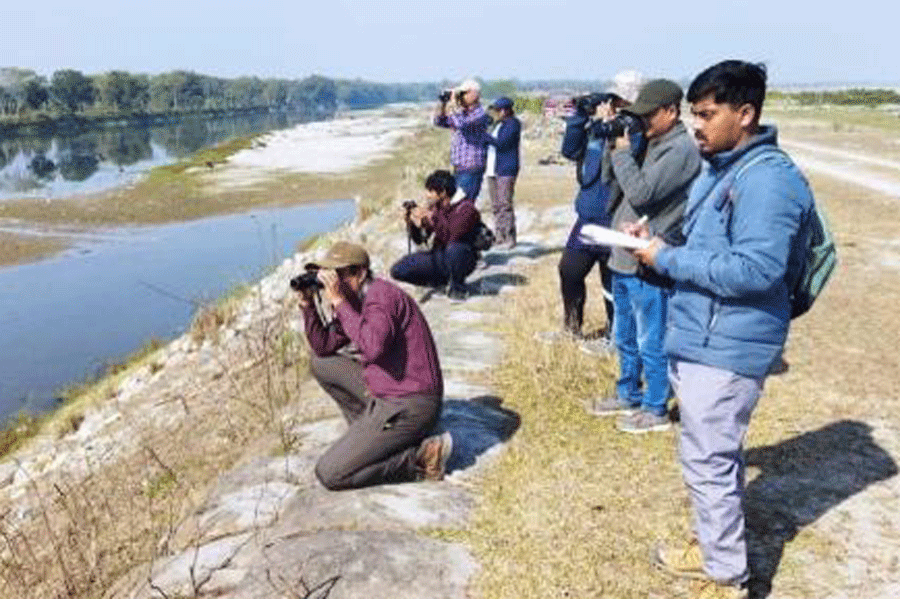Ornithologists and bird enthusiasts based in north Bengal, who started the annual waterfowl count on Wednesday, expressed fears of a drop in the turnout of migratory birds across different water bodies of the region this year.
The reasons, they said, include erratic weather conditions and the October 2023 flash flood in the Teesta that affected the river's aquamarine life.
On Wednesday, members of the Siliguri-based Himalayan Nature and Adventure Foundation (HNAF), along with a team of experts, began the exercise that will last for a month. Ahead of the count, as some members visited some water bodies for a survey, they noticed fewer birds.
“The flash flood in Teesta on October 4 led to huge silt deposits downstream and affected the aquatic life of both flora and fauna. The siltation at Gajoldoba, which is one of the largest sighting spots for migratory birds, has impacted the fodder base for the birds. Erratic weather, especially a dry spell of ‘warm winter’ during the past two months with no rainfall, has also decreased water levels in different water bodies. Hence, we are apprehensive of a low turnout of waterfowls this year,” said Animesh Bose, the HNAF programme coordinator.
According to Bose, they found around 10,000 migratory birds of 70 different species in Gajoldoba last year. Among these were Falcated Duck, Red Breasted Merganser, Dunlin, Bar-headed Goose and Northern Lapwing.
Located under Rajganj block of Jalpaiguri, around 25km from Siliguri, Gajoldoba is also famed for its mega tourism hub.
“The presence of migratory birds here had inspired chief minister Mamata Banerjee to name a portion of the tourism hub Pakhi Bitan or a bird sanctuary,” said a bird enthusiast of the region.
The count is being carried out in association with the state biodiversity board and the state forest department. During the exercise, teams will reach several water bodies, count waterfowls and note the species sighted.
The locations are Fulbari near Siliguri, Murti and Jaldhaka (adjacent to Gorumara National Park), Torsha under Jaldapara National Park, Nararthali in Buxa Tiger Reserve, Rasikbil in Cooch Behar, Domohani near the Teesta, and Gosainhat, at the confluence of the Diana and Jaldhaka rivers.
“Once we finish counting, our reports will be sent to the state biodiversity board, state forest department and the international wetland bureau. These reports will go into making a comprehensive and updated database of the migratory birds and the wetlands,” Bose said.










